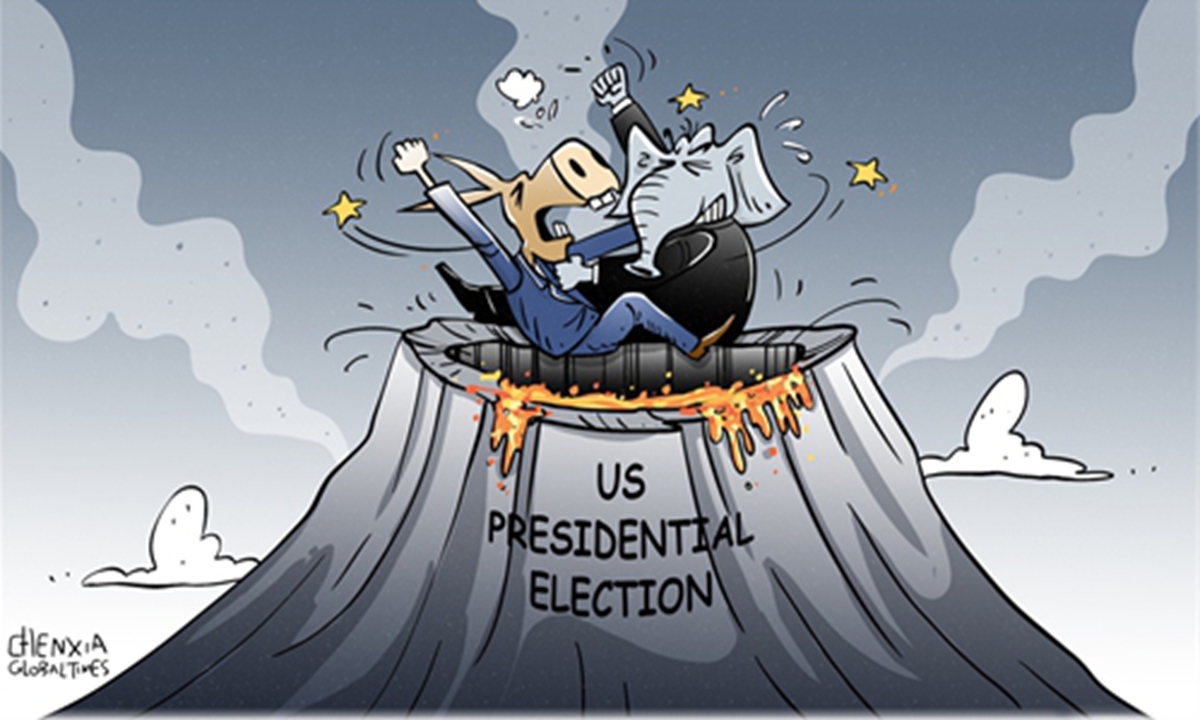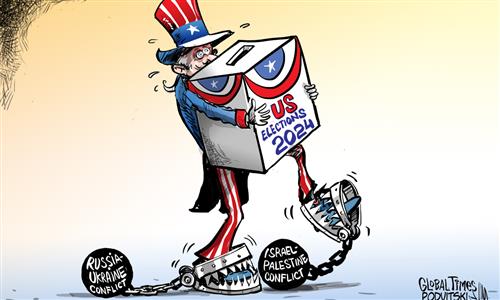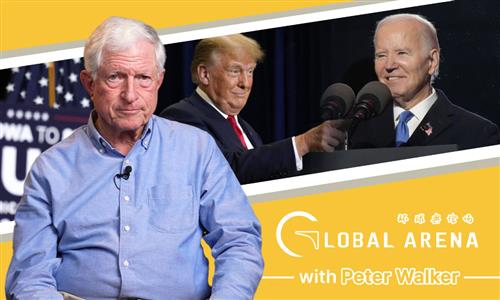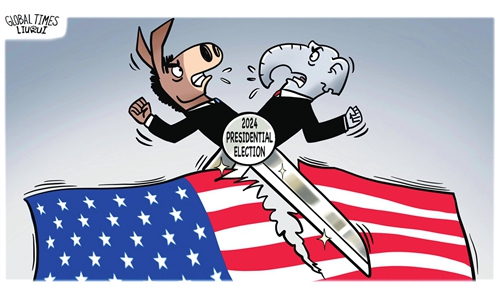
Illustration: Chen Xia/GT
This year's US presidential election has captured the world's attention, not merely as a domestic political event, but as a spectacle with profound implications for global politics and the stability of international relations. The heightened concern among the global community, especially among US allies, underscores broader anxieties about the direction the world's preeminent power is heading.A commentary from Le Monde encapsulates a widely shared sentiment: "Donald Trump has gone from being a symptom of the crisis afflicting American society to a driving force." This statement reflects a growing apprehension that, under certain leadership, the US could amplify its hegemonic tendencies to extreme fundamentalism, potentially destabilizing the international order. The question of how far an America driven by hegemony and fundamentalism can go is pivotal in understanding the stakes of this election.
The worries stem from the potential for the US to pursue an extremist path. Trump's campaign promises to reimpose punitive tariffs, tighten international aid, cut taxes, and restrict immigration, underline a shift toward policies that are not just inward-looking but aggressively unilateral. His controversial remarks about immigrants "poisoning the blood of our country" during a speech in New Hampshire, and the subsequent backlash, including criticism from Joe Biden comparing Trump's rhetoric to that of Nazi Germany, highlight the polarized and extreme nature of the current political discourse.
This election has exposed the extreme nature of hegemonism in the face of globalization and the trend toward multipolarity. By examining this extremism in the context of hegemonic history, we can gain a better understanding of the potential consequences of America's future actions on the world stage.
Extreme hegemonism does not reflect confidence in its dominance, but rather anxiety over maintaining it. It leads to a willingness to go to great lengths to preserve hegemony, perceiving all internal and external challenges as threats.
Despite being the most powerful nation, the US faces new challenges as emerging nations are rising, supported by movements of independence, self-determination and anti-colonialism that the US once championed. Now, as these nations focus more on national and ethnic cohesion and rely on their own development to safeguard their interests, the simplistic narrative of democratization and liberalization is no longer sufficient in this changing landscape.
The essence of maintaining American strength lies not solely in boosting its economy, but in navigating the delicate balance of giving and taking in international relations. The question is whether a hegemonic power can sustain its dominance not by protecting other nations or the order it leads, but by making more concessions and transferring more power.
This is the crux of hegemonic pain, especially for extreme hegemonism, where the contradiction between benefiting the world and strengthening America becomes most acute. Thus, keeping the US strong is not just a matter of boosting its economic power.
Keeping the US strong by putting pressure on the other side to weaken rivals, a strategy that tends to overestimate the resilience and influence of hegemony itself, can lead to a vicious circle, which tends to turn into a lose-lose game against a globalized multipolar world.
Increasing rivals' pressure does not reduce its own pressure but aggravates it.
As the 21st century unfolds, we may witness the US gradually entangling itself in the traps of hegemonism, potentially signaling the beginning of the end for an era dominated by American hegemony. With the rise and fall of hegemonism as the grand drama of international politics, an America veering toward extremism might mark the start of this drama's final act.



